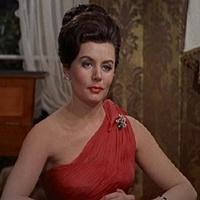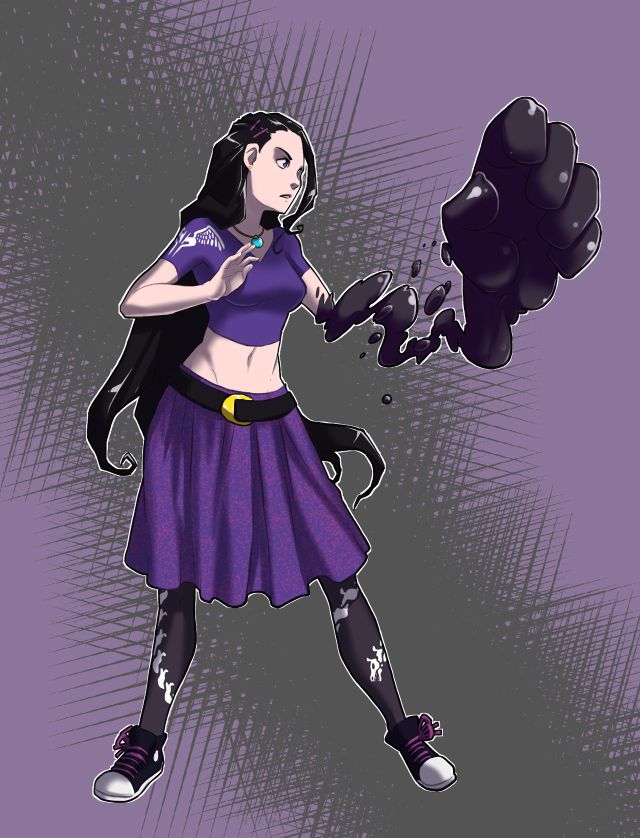Question The decline of the TV and Movie industry
- CrazyMinh
-
 Topic Author
Topic Author
Movies, TV, books, video games: They're all artworks. But now, many are huge, steaming, stinking dumpster fires of terrible hackneyed writing, poor attention to detail, and such lacking care for creating quality entertainment that they actually make me embarrassed to be the same species as the production crew. These include financial failiures and f**king badly written monstrosities such as Star Trek Discovery, Star Wars: The Last Jedi, Star Wars: The Force Awakens, Batman Vs Superman: Dawn of Justice...so many of these belong to franchises that were once great. Star Wars is a prime example, as is Star Trek.
When TV and Movie writers set out to make entertainment, they don't do it with the intention of creating art. At least not if you're talking about a movie belonging to a existing franchise. It's all about merchandising and money. But the thing they don't seem to get is that if you want to MAKE money in large amounts, you should be aiming for quality, not quantity or the amount of references to past successes you can cram into one scene. Star Wars: The Last Jedi had so much potential. But instead of the epic science fantasy, sword-and-sorcery epic that earned Star Wars such renowned overall, we got:
- Terrible jokes
- Great female actors whose scripting was so f**king terrible that they came off as either Mary Sues (Rey), SJWs (that Chinese girl I can never remember the name of), completely and utterly stupid (that purple-haired nincompoop who ends up committing suicide by ramming her face into a star destroyer at hyperspeed), or just plain wasted (Phasma (who should have been used better in at least some kind of arc for Fin's character)).
- References meant to have fans jizzing themselves in utter nergasmic excitement. Seriously people, we want new stuff which fits WITHIN what we already know. Not bullshit like having the Enterprise (redesigned and totally f**ked up) appear at the end of a certain show that should be Krenimed out of the space-time-continuum.
- Plot twists that make absolutely no sense, don't contribute to the story and/or just ruin a potentially great character arc or plot line immensely OR EVEN JUST MAKE SOME SACRIFICE THAT MIGHT HAVE SALVAGED YOUR STORY ACTUALLY MEAN SOMETHING!!! I'M LOOKING AT YOU, DISCOUNT HOTH SPEEDER SCENE!!!
- When your show fails, blaming the fans and saying that they're something along the lines of 'Intolerant, racist, homophobic, sexist, hateful toxic fanboys/girls who can't appreciate art or diversity'. Yeah. So I, someone who could spend hours debating the engineering behind a Galaxy Class Starship is toxic. Me who is so f**king progressive and so towards a future where none of those labels should exist is 'hateful of diversity'. Yeah. Sounds like they're projecting really.
In fact, a common trend seems to be a combination of all of the above. Certianly both STD and SW:TLJ used endless references, plot twists that actually made the story less coherent and absolutely f**king terrible and wasted talent, and then insulted and berated the fans when they didn't actually LIKE what you made. It's your own bloody fault for creating terrible art!!!
Stanley Kubrick got the idea of movies as art. Hell, you pick any one of his movies, and they'll be considered high art. George Lucas's work before Episode 6 of Star Wars is also good, as is the Zemekis Brothers. In fact, pick any 70's, 80's or 90's cult classic/utlrafamous work/franchise, and it'll be leauges above most things that come out of the shithouses of hollywood today.
[To Be continued]
You can find my stories at Fanfiction.net here .
You can also check out my fanfiction guest riffs at Library of the Dammed
- lighttech
-

I actually work in the town and boy the stories I could tell of shows lasting one day and cancelled even before they got on TV!
But you are dead on!
Rey in Star Wars: The Force Awakens....how does she magically beat a trained sith...still wondering about that!
(that Chinese girl I can never remember the name of), completely and utterly stupid...yep I still to this day don't understand that whole section of the plot??? or what plot??? You mean to tell me, that REAL honest to goodness SPIES don't ALREADY have code breakers/ hackers??? That is like a Bond movie without 'Q' branches items...just why??
Part of the WA Drow clan/ collective
Author of Vantier and Shadowsblade on Bigcloset
- Rose Bunny
-

There are still good movies and shows out there, you just have to look in the right places. I'm looking at you Infinity War and Jessica Jones: Season 1.
High-Priestess of the Order of Spirit-Chan
- Kettlekorn
-

Anyway, you're just plain wrong if you think the "TV" industry is declining. I've barely been paying attention to all the cool new series that have come out in the last ten years, and I can already list at least half as many good recent series as the good series from the 90s. And that's before accounting for the fact that my standards were much lower back then. Same goes for movies.
Stop focusing on the bad. You need to remember that there are more humans alive now than ever, and they have more free time to spend on creativity, more force multipliers to produce things, and more accessible avenues for distribution. That means there is going to be far more total output than there has ever been, both good and bad (especially the bad, due to fewer obstacles filtering it out). If you only look at the bad, then of course it will seem like things are getting worse. But you don't have to look at the bad. Nobody holds a gun to your head and makes you watch that shit. You can choose to only watch the good stuff, and the simple fact of the matter is that there's more good stuff now than there ever was.
- Astrodragon
-

I love watching their innocent little faces smiling happily as they trip gaily down the garden path, before finding the pit with the rusty spikes.
- Kettlekorn
-

- null0trooper
-

Rose Bunny wrote: Her name was Rose.... *headdesks*
Rose Tico played by Kelly Marie Tran.
Forum-posted ideas are freely adoptable.
WhatIF Stories: Buy the Book
Discussion Thread
- lighttech
-

null0trooper wrote:
Rose Bunny wrote: Her name was Rose.... *headdesks*
Rose Tico played by Kelly Marie Tran.
yep
But, IMO she is a 'red shirt' and was only there to hock that 'rebel secret decoder ring' to kids--beyond that her part did nothing
Part of the WA Drow clan/ collective
Author of Vantier and Shadowsblade on Bigcloset
- Katssun
-

Remakes and adaptations are just part of the business. Some are better than others, some are worse than their originals. Some, you'd never even know were remakes of something else!
Hollywood has become increasingly risk adverse because they've been burned so badly in the past. Sometimes to the point of bankruptcy, sometimes so close that a single film saved them.
But there's great stuff out there. Television has really come into its own the last few years, you just have to know where to look. The Expanse, Humans, Ash vs Evil Dead, Outlander (until recently), Orphan Black (omg, so good), The Americans, Comrade Detective, The Knick, Marvelous Ms. Maisel, Tin Star, Ozark, etc. What can I say? I have varied taste.
As for film, I think it will turn around. Knowing where to look is the hardest part. The films marketed in your face aren't necessarily worse or better than before, you've just forgotten the dreadful stuff from years and decades before.
Marvel started to get the lesson. They moved away from the "Phase 1" type of movies: origin story (hero's or villain's), kill off the villain, maybe some romance. The formula that hasn't changed since the 1980s. Instead they started making "movies" that star superheroes. The heist movie, the political thriller, the ensemble comedy, the buddy flick, the sins of the past coming back, the redemption story, the other redemption story, the coming of age story, and most importantly, nuanced villains. DC will learn too, they just need more time. They should have been taking lessons from their animation arm from the start though...
Outside of the superhero genre, there's some really, truly, great stuff coming out there. Don't fall for the blockbuster, though those are great too in their own way. Sometimes, you have to take them for what they are. I saw The Meg, and loved it! But I wasn't expecting anything profound from it, just a great, terrible, high budget B-movie.
Maybe also consider looking at other language cinema. Korea, China, and Germany are still producing incredible gems among their films year after year. Just looking at Korea, The Handmaiden, The Villainess, Coin Locker Girl, The Truth Beneath, and plenty of cheesy inane romantic comedies that are my guilty pleasure.
If anything, television and film has gotten better recently. I'm not trying to be rude, but I feel like anyone who says that is just not looking in the right places.
And one last one just to throw it out there, for no reason. Wind River.
- Mister D
-

"The Man In The High Castle", for example, where Ridley Scott extends the story way beyond what Dick originally had written.
Or the Netflix series, the YouTube Originals, an all of the independent short cinema, that use YouTube and Vimeo as their distribution channels.
Measure Twice
- CrazyMinh
-
 Topic Author
Topic Author
So, with all these crappy moves by big studios, what does actually get written well consistently???
Well, you have a multitude of smaller-scale series that actually are written either brilliantly or at least competently. In terms of Star-Trek like series, you have The Orville, a Star Trek homage that does Trek better than current trek. For other sci fi, you have Red Dwarf[/i.] You have hero series like Arrow, The Flash, Daredevil, Jessica Jones and other such series that are done on a smaller scale than the big-name superhero movies from both Marvel and DC, but are still written in such a way that they actually make valid and interesting story arcs that don't rest solely on stupid plot twists. You also have series like The Expanse, GoT, Black Mirror, and Stranger Things which are all brilliantly written for the most part.
In terms of movies, you have the obvious candidates in MCU and the DCU, but you also have recent greats like The Martian, Ready Player One, Logan, and Deadpool 2. Note that I included DP2 and Logan due to them NOT being part of the MCU featuring the Avengers and co. There's plenty more I missed, but it's really hard to pick out gems among the multitude of trash in Hollywood today.
The reason why these movies and series succeed is simple:
THE WRITERS DON'T HAVE ROCKS FOR BRAINS!!!
[To be continued]
You can find my stories at Fanfiction.net here .
You can also check out my fanfiction guest riffs at Library of the Dammed
- Bek D Corbin
-

Just ask Joss Whedon. His battles with American TV Execs are epic struggles. Harlan Ellison likes to recount the time that he literally ran down the long table at a TV executive, slipped and slid down the table to punch out one particularly noxious example. The thing is, they simply don't GET that writing is a skilled craft.
Okay, there's also the fact that they can make money on side deals for Production values and other sleaze-work, which just doesn't work on writers.
Part of it is, I think, that American TV executives tend to have MBS and Marketing degrees, while British TV execs, who routinely turn out better fare, tend to have Humanities degrees.
- Kristin Darken
-

CrazyMinh wrote:
THE WRITERS DON'T HAVE ROCKS FOR BRAINS!!!
I've said this in one of your movie rant threads before and I'll say it again and again until you 'hear' me.
It isn't actual writers who are penning that drek. We live in a society that praises the businessman, respects the tradesman while preferring to be his manager/employer than to be him, and tolerates 'unskilled' labor. There is little to no respect for artists, writers, or performers. When they at the top tier, we consider them overpaid elitists who are out of touch with anyone in the 'real world' and when they are not; they are paid so little for their effort that they have to work other full time jobs to pay the bills.
What this means in a practical sense is that very few artists of ANY sort have the ability to go 'all in' on their work. Only those who are independently wealthy or are willing to sacrifice everything about life that others take for granted (having a family, buying a home, living anything other than paycheck to paycheck). And even then, there is no guarantee that increasingly risk adverse producers, publishers, and production companies will give them a chance to develop their work.
In the 70's, a playwright could have a small room and work on scripts all day and get them read/staged at night. They could see what worked and what didn't and make changes the next day. Today? There are only a handful of companies that will even read new work unless the playwright has an agent. Most want a script in perfect condition: heavily developed, workshopped, but not staged - this gives them Premier status with minimal risk. But typically, they'll have to settle for the next best... which is spending years working (with no fees/payment involved) with a playwright until the script is in a condition that they feel 'safe' with. Because most theatres can't afford the hit to their budget that a flop would cause.
So what does this have to do with tv and film? It's the same big pool of writers. There's plenty of crossover ... and the development of skilled writers requires opportunity. Otherwise, the only thing getting produced is that random, purely luck, brilliance driven piece. Those are incredibly rare. So, we don't have skilled writers in the pool anymore. The ones that ARE there are ignored in favor of show building using marketing demographics.
And I don't see a solution to this as long as we focus education on STEM and ignore cultural and artistic aspects of history and society.
Fate guard you and grant you a Light to brighten your Way.
- CrazyMinh
-
 Topic Author
Topic Author
Kristin Darken wrote:
CrazyMinh wrote:
THE WRITERS DON'T HAVE ROCKS FOR BRAINS!!!
I've said this in one of your movie rant threads before and I'll say it again and again until you 'hear' me.
It isn't actual writers who are penning that drek. We live in a society that praises the businessman, respects the tradesman while preferring to be his manager/employer than to be him, and tolerates 'unskilled' labor. There is little to no respect for artists, writers, or performers. When they at the top tier, we consider them overpaid elitists who are out of touch with anyone in the 'real world' and when they are not; they are paid so little for their effort that they have to work other full time jobs to pay the bills.
What this means in a practical sense is that very few artists of ANY sort have the ability to go 'all in' on their work. Only those who are independently wealthy or are willing to sacrifice everything about life that others take for granted (having a family, buying a home, living anything other than paycheck to paycheck). And even then, there is no guarantee that increasingly risk adverse producers, publishers, and production companies will give them a chance to develop their work.
In the 70's, a playwright could have a small room and work on scripts all day and get them read/staged at night. They could see what worked and what didn't and make changes the next day. Today? There are only a handful of companies that will even read new work unless the playwright has an agent. Most want a script in perfect condition: heavily developed, workshopped, but not staged - this gives them Premier status with minimal risk. But typically, they'll have to settle for the next best... which is spending years working (with no fees/payment involved) with a playwright until the script is in a condition that they feel 'safe' with. Because most theatres can't afford the hit to their budget that a flop would cause.
So what does this have to do with tv and film? It's the same big pool of writers. There's plenty of crossover ... and the development of skilled writers requires opportunity. Otherwise, the only thing getting produced is that random, purely luck, brilliance driven piece. Those are incredibly rare. So, we don't have skilled writers in the pool anymore. The ones that ARE there are ignored in favor of show building using marketing demographics.
And I don't see a solution to this as long as we focus education on STEM and ignore cultural and artistic aspects of history and society.
I'm fully aware of this fact, that comment was for dramatic effect and for comedy. As I stated two weeks ago at CC, my sense of humour is kinda skewed towards the not-funny zone.
A lot of my family friends have worked on Aussie shows like Home and Away, which is a drama show set on the northern beaches of Sydney. There's a lot of scenic drama shows like that shot round the area, and a lot of the people who my family tended to hang out with when we lived there were writers. The networks who order those shows tend to prioritise getting the shows out there, and many a time those writers I know have had to scrap WIP scripts with potential in favour of stupid sh*t like clip shows and other f**king filler stuff. Not that H&A has any clip episodes TMK.
But still, I know that the majority of people who write this stuff have little experience. It's not the education system's fault: plenty of people graduate high school to get into the arts, and I know many of my classmates have made a anme for themselves in the art and entertainment industry. It's also not the STEM system's fault: in fact, a lot of recent effort has been made here is Oz to integrate the Arts with Science. There's been some big art exhibitions exibiting the 'art of science', and already the two apparently disparate and unrelated fields are combining.
What's really at fault is that the people writing this sh*t don't actually get what material they're writing from.
Also, wait...I've done this before??? I'm pretty sure I've only ranted about STD. But at least I'm doing it in a intelligent manner right???
Right???
You can find my stories at Fanfiction.net here .
You can also check out my fanfiction guest riffs at Library of the Dammed
- Sir Lee
-

It's nothing new. Hollywood has boom and bust cycles. A few movies with similar features get successful, then every creativity-less hack goes and jumps on the bandwagon. Since they don't have anything really creative to justify their efforts, they go the "bigger, louder, more expensive" route until it becomes unsustainable. Remember musicals? They went fine, until they started trying to outdo each other instead of making good movies. Remember fifties epics? Or westerns? Same thing. Then the ILM-style special effects sci-fi movies of the late Seventies to Eighties. And then the CGI movies of the Nineties. Every time, producers focused on the "bigger, louder, more expensive" -- but not actually "better." They ran a fad into the ground... and then when some creative filmmakers did good storytelling with a reasonable budget and turned a profit, they went and moved to running that into the ground.
- null0trooper
-

Kristin Darken wrote: There is little to no respect for artists, writers, or performers. When they at the top tier, we consider them overpaid elitists who are out of touch with anyone in the 'real world'
That's not much different than people working in STEM fields. Sure, there's plenty of commentators calling for more professionals with minority identities in those fields, and a token political effort to promote STEM degrees in the hopes of providing more entry-level folks who can be paid far less by the corporations paying lobbyists supporting those efforts. But respect for our professional opinion regarding our own field? Nope.
Kristin Darken wrote: and when they are not; they are paid so little for their effort that they have to work other full time jobs to pay the bills.
Depending on the accounting method you choose, "so little for their effort" can be considered a debit and not a credit. It's not uncommon for people to expect performers to perform for free while other participants are paid for their work. It's also not unknown for "fans" to demand commissioned work be discounted to free as in beer.
Forum-posted ideas are freely adoptable.
WhatIF Stories: Buy the Book
Discussion Thread
- Ametros
-

Right now we're in a transitional period when it comes to the production and consumption of media. Cinema is still going strong, but Netflix is powering forward at an astonishing rate, and as mentioned by others, there are a significant number of worthwhile shows being produced of late in large part due to this new model.
It probably also helps if you broaden your horizons a bit and try something new, as if you stick with the same genre or type of media, you're bound to chew through most of what's deemed good, and there's a fair chance you'll become overly critical of anything within that space. Don't become jaded, if possible. I myself over the past few years started getting really into anime, and the cultural differences behind it keeps it fresh for me - plus there are uniquely good examples I'd recommend even to those not really into anime - the film "A Silent Voice" and series "Your Lie in April".
But even for "western" media, some more recent examples I'd mention in addition to those of others: Brooklyn Nine-Nine, Black Mirror, and Matt Groening's new Disenchantment.
Seriously, thank you for your time and effort. It is appreciated.
- JG
-

The future of TV, as it turned out, wasn't much better.
With a few rare and blessed exceptions.
- Schol-R-LEA
-

CrazyMinh: Note that I can only really speak for television in the US, which is sort of its own demented thing despite its influence on TV elsewhere. Things in Australia are almost certainly different in a lot of important ways. Also, while I know you aren't old enough to remember most of what I am talking about, I expect you've heard older fans griping about at least some of it.
Consider that up until around 2005, the most consistently rating television series (that is, not huge hits, but always rating well) were all daily daytime soap operas, most of which consisted of a handful of plots which they recycled every two to three years. While most of the longer running series had at least one really shining moment to them, the sheer weight of the production schedule - having to produce shows for five days a week (though they often shot several episodes in a single day, to ensure that the there was some slack in the schedule), year after year, to be broadcast upwards of 45 weeks a year - made maintaining all but a marginal level of quality a losing battle even for the best of them.
(Indeed, one of the prime drivers for the adoption of Quadruplex videotape in the late 1950s was that producing soap operas for live broadcast was so grueling, while filming them was far too costly and time consuming for daily rushes (because acetate film was - and still is - expensive, wasn't reusable the way magtape was, and once shot the film would then need to be developed). While the shows were often still broadcast live in the immediate vicinity of the studio for some years later, at least when there was a time crunch, the videotape allowed them to distribute the shows to stations that couldn't carry them before. But this is getting away from my point.)
Some of the most successful prime time TV series in history were Gilligan's Island, The Brady Bunch, Three's Company, The Dukes of Hazzard (cue me shuffling shamefacedly when I think back on my childhood), Full House, Seventh Heaven, America's Funniest Home Videos, and Touched by an Angel. Just a few years ago, one of the most successful shows on television was Here Comes Honey Boo Boo.
And they weren't even the really terrible ones. Even during the Big Three era, every year three or four series such as My Mother the Car or Manimal came and went.
Meanwhile, for every really good or unique series that has succeeded (or at least gained a fan following after the fact), there are ones such as Firefly, Beauty and the Beast (which I don't really know much about, but fans seem to think it was an underappreciated gem), or My So-Called Life which got basically no worthwhile ratings. While each of those had been undercut by network execs, they mainly failed because there weren't enough viewers interested in them, and not enough of those who would have been interested had heard about them before they were cancelled.
And from all accounts, in 1966 the general public saw STOS as 'unique', but not, for the most part, 'good'; you have to remember that it actually was going to go off the air after season 2, and while fan outcry earned it a third season, that season was so heavily screwed over by network interference - and the number of weak episodes, including the infamous "Spock's Brain" - that even the fans got disgusted with it. The original Star Trek was not a successful series in its own time; the sheen of triumph it now wears came long after it was cancelled, and in case you haven't noticed, most people who aren't SF/F fans have always seen it as a silly and overblown franchise.
Even some of the successful series, such as M*A*S*H and Moonlighting, were very much a love-it-or-hate-it thing, which tends to gain the ire of network execs, who as a rule don't want to make waves, even if they profit from it. During the first 30 years of the medium, bland mass appeal was preferred over controversy, at least until they noticed that controversy often brings in new viewers.
On the other hand, a 'cult' series tends to be the worst thing for a network, as they don't have the ratings to bring in the ad revenues they want, but have just enough that they have trouble justifying pulling the plug unless they have something lined up to replace them. If you've ever heard fans of Daria or Mystery Science Theater 3000 complaining about the way MTV and Comedy Central, respectively, screwed those two series over in their middle seasons (to the degree that MST3K was cancelled by CC after season seven, only to be picked up by Sci Fi Channel for another three), with constant reschedulings and episode cancellations, and being paired with the most obnoxious ads possible, it was because the networks couldn't sell enough ad time for those series so they deliberately tried to piss the fans off enough that the could finally get rid of those under-performers in favor of mindless but ratings-grabbing treacle.
If a series like that does last, it is usually because the network doesn't have anything on hand which it expects will perform better, which is a situation that the executives hate for obvious reasons. They want the shows to be successful, but if a show is under-performing, even if it is still bringing in more revenue than it costs, they want it out ASAP, and if for some reason they can't get rid of it, they will show their displeasure at the situation.
And don't forget that even a smash hit such as M*A*S*H was originally seen as so potentially controversial that it was intentionally launched in the 'Sunday night death slot' against the two consistently highest rated prime time shows of the early 1970s - The F.B.I. and The Wonderful World of Disney - and only got attention because it appealed to audiences either fed up with or tired of those two long-running (by the standards of the day) series.
(In the late 1980s, Larry 'Ferret Face Frank' Linville went on the lecture circuit to talk about the production of the series, and I happened to catch that when I was at Southern Connecticut State University, which is where I first heard this story, but it has been corroborated by others since.)
Finally, a lot of what is happening is due to changes in how television is produced and distributed. Forty years ago, you would see a handful of stinkers getting to viewers each season, because there were only so many channels in a given reception area and production execs had to carefully weigh each show before greenlighting them. However, this doesn't mean that there were more good shows - those same execs were so cautious that they tended to stick to the most banal and repeatable formulas they could, with the result that as early as 1962 one retired executive was calling that year's offerings 'a great wasteland', and while that particular year was apparently notably bad, most years weren't much better even in the 1990s.
In contrast, today there is an unrelenting torrent of new shows, good, bad, and ugly, as desperate cable channel execs try to compete for ever more fractional and disparate audiences, usually with a strategy of 'throw it at the wall and see if it sticks'.
That last part is important. Yes, today there is more 'crap', but there are also more 'gems', simply because there is more of everything.
Also, newer forms of production and distribution have opened the throttle even wider. Shows like Breaking Bad and Transparent (I haven't seen either of them, I've heard a lot of good about both) still wouldn't have been possible today if there weren't highly-directed services such as Netflix and Amazon Video who are more able to underwrite something that is risky or is expected to have a narrowly-focused appeal.
CrazyMinh, this is something you should be familiar with yourself, given your fondness for anime; while I can only speak for US fandom, I expect the situation in Australia is similar, as it is rooted partly in the export issues.
While there was a large underground fandom for anime and manga here from the early 1990s on, until Cartoon Network came along this was mostly limited to a handful of poorly reproduced tankobon (such as the infamous Viz version of the Ranma 1/2 and Macross Plus mangas) and VHS tapes or old-style 12" laserdiscs sold in comic book shops. For series and films that hadn't gotten official releases in the US ( which was the majority of them ), it was left to the fan clubs, who had to ' keep circulating the tapes ' of fansubs. Even then, CN was very, very cautious in what it aired initially, because the (more self-promo, sorry) Animation Age Ghetto was still going strong in the 1990s and early 2000s (hell, it still comes up even now, some of the time).
(Mind you, even today KCTT is alive and well, as a lot of anime - especially older ones - still don't have official releases, and some don't get official DVD or streaming distribution even in Japan.)
The advent of services like Crunchyroll was revolutionary, giving fans outside of Japan access to an unprecedented amount of anime. However, it also means that things previously weeded out by the Import Filter effect are also reaching audiences outside of Japan, so today we get a fair amount of the garbage along with the good stuff, as well as plenty which is of debatable quality or has a marginal/cult following but doesn't appeal to the majority of fans.
I can go on an equally long rant about the trash Hollywood has churned out over the years, but I will limit it to just this: within ten years of The Birth of a Nation - which, no matter how we might see it today, was the first truly epic blockbuster the film industry had seen - there had been no less than four film treatments of the novel Ben Hur, two of which were runaway successes just years apart. Remakes were old hat even before talkies came along.
Out, damnéd Spot! Bad Doggy!
- Schol-R-LEA
-

On a somewhat less related note, I got the title for "Mister Seahorse" from a piece of protest art (about gay marriage and LGBT parental rights) consisting of a stylized picture of a seahorse with the caption "Mr. Seahorse knows that men can be mommies too". This was stenciled on sidewalks around Berkeley, most notably in front of the Pacific Center, which was definitely a case of preaching to the choir IMAO (Pacific Center is an LGBT mental health and wellness organization in the Bay area; I was getting psychotherapy through them for about five years).
Out, damnéd Spot! Bad Doggy!
- Valentine
-

For every Battlestar Galactica (original) there is a Supertrain or Ark II or other crappy show.
People tend to remember what they like, or really hate, and forget all the rest.
Don't Drick and Drive.
- konzill
-

in terms of Sci-fi shows we still have the Expanse, the Orville and Dr Who all of them going strong. Heck, the Dr who being produced now is vastly better than what was being produced in the late 80's.
That said, the one thing that does annoy me somewhat about a lot of modern shows is when they deliberately withhold information so that the audience can't work out what the f**k is doing on. I blame the show Lost for this habit and its right up there on my list of pet hates. I like my shows with a clear premis thank you.
- lighttech
-

Valentine wrote: What I truly find funny about this thread, is that it has been said every few years for decades. Probably since the second year TV has existed, at least about TV.
For every Battlestar Galactica (original) there is a Supertrain or Ark II or other crappy show.
People tend to remember what they like, or really hate, and forget all the rest.
Wow even mentioning them is pulling out a historic nerd/syfy royal flush and showing your age!
whats next --the powers of Mathew star or 'the master' tv show??
Part of the WA Drow clan/ collective
Author of Vantier and Shadowsblade on Bigcloset
- Erianaiel
-

You can have superhero action adventures (the default), superhero comedies, superhero thrillers, superhero romances (that one is going to be interesting to find financers for though even if it could be awesome).
DC still has to learn this (they also urgently need to learn that there are more colours than grey, brown and black)
- RoseBlack
-


